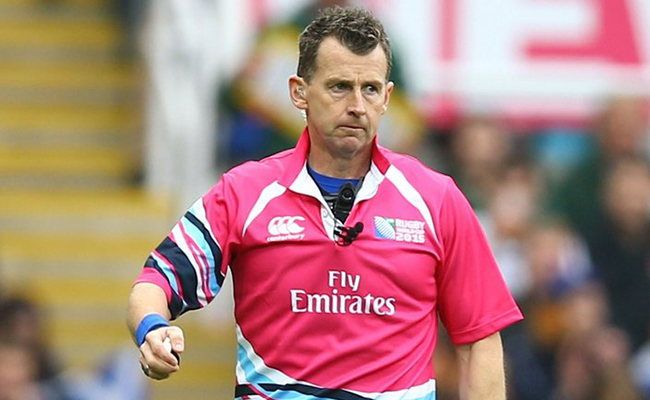Nigel Owens reveals he nearly quit rugby over homophobic abuse
The referee revealed he almost left the sport after receiving homophobic abuse during a 2014 Twickenham match.

Nigel Owens has revealed he almost quit rugby after suffering homophobic abuse from fans during a rugby match in Twickenham in 2014.
Speaking about the experience in a video for Dove Men+Care, Owens said: “It was New Zealand vs England in Twickenham, I’d had a couple of phone calls asking me what I’d thought about the comments that had been shouted at me.
“What we really don’t know is were they true rugby people or were they people that just came along to that game? What was difficult, people talking about it and then everyone in the world knows you’re gay. So there was a sense of disappointment, of ‘here we go again’. Even now, after all I’ve been through, there are times where it gets you down and gets you scared.”
The 47-year-old, who was honoured with the Hero Award at 2017 Attitude Awards, continued: “Sometimes you get these comments and read these tweets and you think, ‘Do I really need this? Do I really need this job?’ It does get you down and I honestly think sometimes like saying, ‘Enough is enough, I will walk away from it all.'”
Owens, who came out as gay in 2007, revealed that a personal letter from Football Union chairman Bill Beaumont encouraged him to stay in the sport.
Writing about the Dove video and the letter on Instagram, Owens wrote: “The touching personal letter from @BillBeaumont & the support from the rugby community after the homophobic abuse at Twickenham 2014 proved what a great sport rugby is. It changed my mind to carry on and not give it all up.”
Meanwhile, Beaumont also appeared in the Dove video and spoke about the abuse Owens received during the match. He said: “Forty-eight hours after the game, on the Monday I think, we were made aware that comments had been made.
“I just felt sad that somebody would’ve stooped so low, and I decided then that I would write a personal letter to Nigel that I care about it and the Union cared about it, and that he would always be welcome at Twickenham.”
